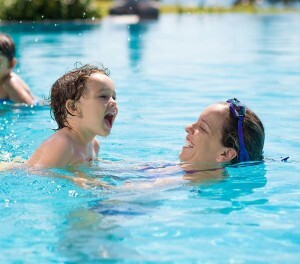Swimming pools are fun – especially for children. However, there are some safety guidelines your kids need to know before you install a pool of your own. There are several basic safety rules your kids should know before you install a pool or let them go into an existing pool area. For seasoned pool owners, the beginning of spring and summer is also a great time to review basic rules and less obvious pool safety tips.
Swim With Supervision
Children should never enter the pool area without an adult. When your kids are in the pool, they need your undivided attention. Do not use your phone, tablet, or other devices in the pool area – it’s too easy to get distracted, even for a few seconds, and miss the beginnings of what could become a tragic accident. If kids will be in the water for an extended period, try to have 2 or more adults in the area with them. Designate one adult to watch the water for a set period, then trade off. Keep babies and toddlers within arms’ reach in the pool.
Enroll Kids in Swimming Lessons
Children can begin swimming lessons as young as preschool age. Investigate options in your community and find child-friendly swimming lessons. During lessons, kids should learn the basics like how to float and tread water. Older children can begin learning several common strokes, such as the backstroke and butterfly. Beginning swimmers should always stay near the pool’s edge or shore, no matter how confident they feel in their abilities.
Teach Pool Area Safety
Pool safety extends to the area around the pool as well. Teach children not to run in the pool area, as they could slip and fall. Children should always lock the pool gate behind them when entering, or wait for an adult to do so. Before children enter the pool area, any pool alarms should be enabled. If you don’t have a pool alarm, get one. It will alert you if your children get into the pool area without supervision.
Use Flotation Devices
Even if your child can swim, he or she should wear a U.S. Coast Guard-approved flotation device in the pool. Note that this is not a floating ring or water wings; if you’re unsure which devices are approved, research first or ask an expert. Discourage children from swimming alone; even experienced swimmers should swim with a partner, preferably an adult.
